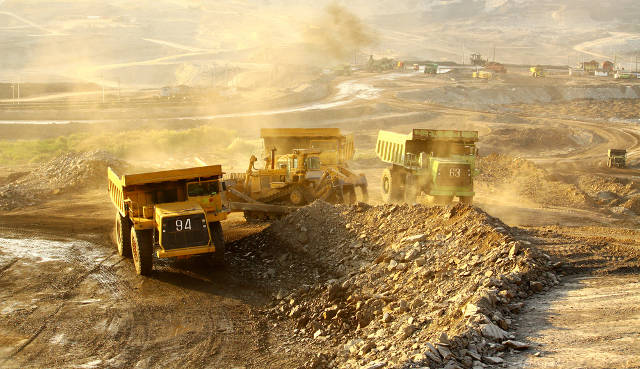CEO of Gold Fields, Nick Holland, has called on South African mining companies to switch from conventional gold mining techniques to advanced mechanisation and automation, so as to survive the sharp increase of costs and declining ore quality.
 Image credit: SARIN KUNTHONG / Shutterstock
Image credit: SARIN KUNTHONG / Shutterstock
The presentation, titled 'The gold mining company of the future', was given at an event hosted by the Gordon Institute of Business Science in Johannesburg.
Holland advocated adopting highly sophisticated machinery, 3D modeling, and better data analysis techniques.
The journey toward not just mechanization but automation and digitization has begun and it’s only going to exponentially grow from here. As that bus is picking up speed we’d better get on it.
Nick Holland, CEO, Gold Fields
Mr. Holland emphasized the fact that these more advanced, mechanized mining techniques are already becoming dominant across countries like Australia. Remote-controlled trucks and loaders can make operations safer and more productive, and can help mining companies adapt to a changing market.
Gold prices have steadily fallen since 2011, to about about 40% of their peak, making gold producers across the globe more and more dependant upon profits from old mines containing ore of a decreasing quality.
Bloomberg Intelligence reveals that the average all-in cost of 11 global mining producers was $918 an ounce in the 2Q. On 29 October 2015, the gold for immediate delivery traded at $1,151.70 an ounce at 10:48 AM in New York.
As companies have to work with a higher and higher proportion of refractory ore bodies, which are more difficult and expensive to process, Holland proposed that mining companies should change focus, investing in training local expertise, and developing partnerships with communities, technology firms, governments, and universities.
These partnerships will ensure that the required skilled workers and advanced mining technologies will be available coming years.
Holland went on to express his concerns on the current scenario surrounding the South African mining sector. He stated that the deep-level operations of South Africa’s gold mines would be greatly affected by the global changes in production.
South Deep, the leading South African gold mine, is owned by Gold Fields, and is capable of implementing large-scale mechanised mining as it has wide ore bodies.
However, the rest of the South African mining sites cannot implement large-scale mechanised mining systems as the geological structures are deep-level narrow ore bodies, which would require new technology to unearth gold at depths of 4km or more.
Because of these limitations on other mines, Holland believes South Deep will be the 'last man standing' in the South African gold mining sector, therefore Gold Fields has invested $1bn into developing this mine.
As gold prices drop, mining companies are becoming more reliant on harder-to-process ores, demanding a shift towards higher-technology production. Image credit: Shutterstock / Assistant
Despite the many challenges he presented, Holland is optimistic about government programs like Operation Phakisa, which aims to stimulate key sectors of the South African economy through results-driven collaborations between government and industry. Holland commented:
"I would say that government is taking this seriously.
"They are engaging at the most senior level of the mining industry. The president himself – Jacob Zumba – has endorsed the programme.
"I think they have realised that we need to work out what we are going to do with the very labour intensive sectors of our mining industry – platinum and gold – which account for between 70% and 75% of total employment.
"Where there’s a will, there’s a way, but I don’t know what the outcome is going to be. We have tried for a long time to mechanise steeply-dipping, narrow, tabular orebodies. I don’t know what the solutions are, but everybody knows we have to do something quickly because we are running out of time."